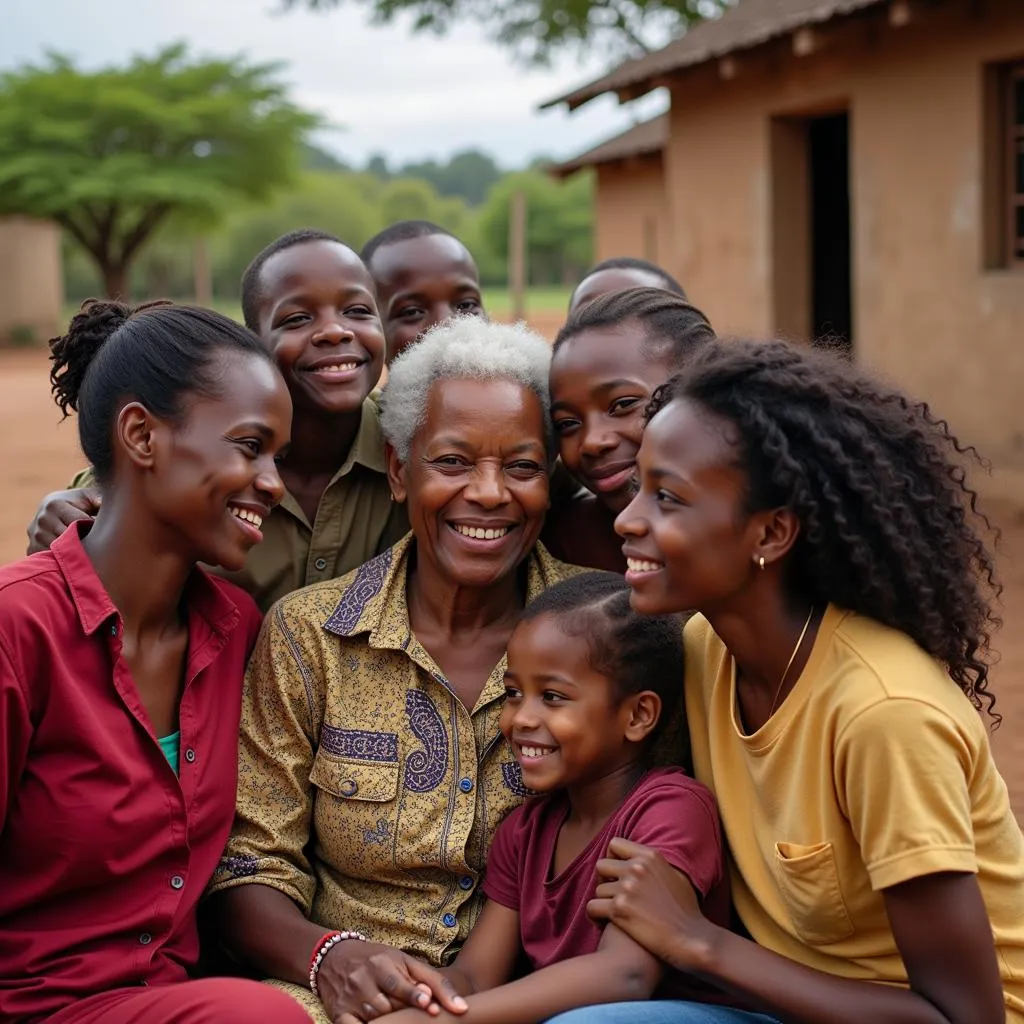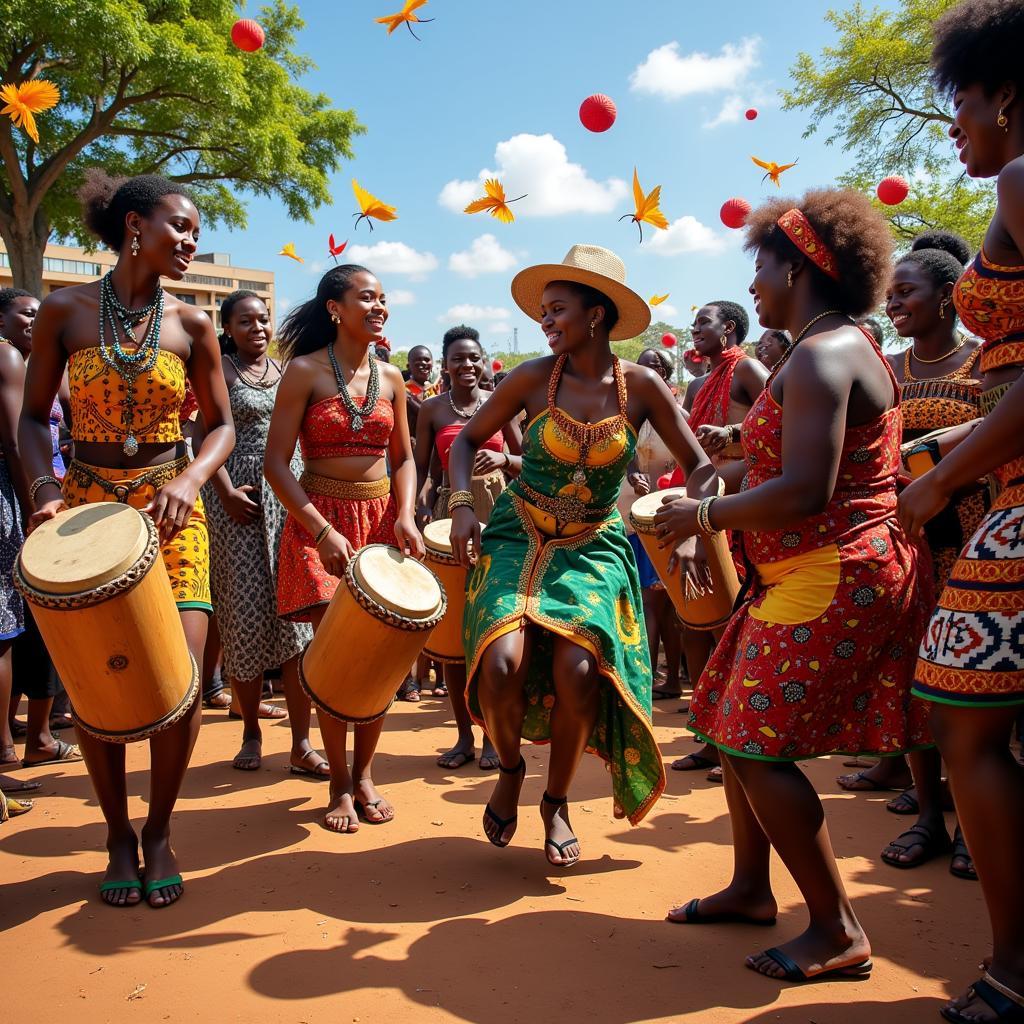The African Union’s Achievements: A Journey of Unity and Progress
The African Union (AU) is a continental organization comprising 55 member states that work together to promote unity, solidarity, and cooperation among African nations. Since its establishment in 2002, the AU has made significant strides in various areas, leaving an indelible mark on the African continent. This article will delve into the notable achievements of the AU, showcasing its transformative impact on the lives of millions of Africans.
Fostering Peace and Security
One of the AU’s primary goals is to maintain peace and security in Africa. The organization has been actively involved in resolving conflicts and promoting stability in troubled regions. The African Standby Force (ASF) is a key instrument in this regard, providing a rapid response mechanism to address crises and emergencies. The AU has played a crucial role in mediating peace agreements, deploying peacekeeping missions, and supporting transitional governments.
Key Achievements in Peacekeeping
- The Darfur Peace Agreement: In 2006, the AU played a pivotal role in brokering the Darfur Peace Agreement, which aimed to end the conflict in the Sudanese region of Darfur.
- The Somali Transition Process: The AU has been instrumental in supporting the Somali government’s efforts to restore peace and stability in the war-torn country. The AU Mission in Somalia (AMISOM) has contributed significantly to pushing back against the al-Shabaab insurgency.
- The AU Peace and Security Council: The AU Peace and Security Council (PSC) is a vital organ responsible for promoting peace and security in Africa. The PSC works closely with regional organizations and the international community to address conflict situations and prevent further violence.
“The AU has demonstrated its commitment to fostering peace and stability in Africa, and its efforts have had a tangible impact on the lives of millions of people.” – Professor Amina Abdi, Peace and Conflict Studies.
Promoting Economic Development and Integration
The AU recognizes the importance of economic development and integration as key drivers of progress in Africa. The organization has implemented various initiatives to stimulate trade, investment, and infrastructure development. The African Continental Free Trade Area (AfCFTA), launched in 2020, is a landmark achievement that aims to create a single market for goods and services across the continent, boosting intra-African trade and unlocking significant economic opportunities.
Key Achievements in Economic Development
- The African Growth and Opportunity Act (AGOA): The AU actively advocates for the benefits of the AGOA, which provides preferential market access to the United States for eligible African goods.
- The New Partnership for Africa’s Development (NEPAD): The AU actively supports NEPAD, which focuses on promoting economic growth and development in Africa through infrastructure development, poverty reduction, and good governance.
- The African Development Bank (AfDB): The AU works closely with the AfDB, a leading development finance institution in Africa, to support projects that promote economic growth and sustainable development.
“The AU’s commitment to economic development and integration is evident in the creation of the AfCFTA, which has the potential to transform the African economy.” – Dr. John Osei, Economist and Trade Expert.
Strengthening Governance and Human Rights
The AU is committed to good governance, human rights, and democratic principles in Africa. The organization has developed frameworks and mechanisms to promote these values and hold member states accountable. The African Charter on Human and Peoples’ Rights, ratified by all AU member states, is a key legal instrument that guarantees fundamental human rights and freedoms.
Key Achievements in Governance and Human Rights
- The African Peer Review Mechanism (APRM): The APRM is a voluntary peer review process that encourages member states to improve their governance, human rights, and economic performance.
- The AU Commission on Human Rights and Peoples’ Rights: The AU Commission on Human Rights and Peoples’ Rights plays a vital role in protecting and promoting human rights in Africa. The Commission investigates human rights violations and advocates for justice and accountability.
- The African Court on Human and Peoples’ Rights: The African Court is a regional human rights court that adjudicates cases relating to human rights violations. It aims to promote and protect human rights in Africa.
“The AU has made significant progress in promoting good governance and human rights in Africa. The organization’s commitment to these values is essential for building a more just and equitable continent.” – Ms. Fatima Ahmed, Human Rights Advocate.
Promoting Education, Science, and Technology
The AU recognizes the importance of education, science, and technology for Africa’s development. The organization has launched initiatives to enhance education systems, promote scientific research, and leverage technology for economic growth and social progress. The Pan-African University (PAU), established by the AU, aims to develop a pool of highly skilled professionals in various disciplines, contributing to the continent’s intellectual capital.
Key Achievements in Education, Science, and Technology
- The AU’s Science, Technology, and Innovation Strategy for Africa (STISA-2024): This strategy aims to position Africa as a global leader in science, technology, and innovation.
- The African Continental Free Trade Area (AfCFTA): The AfCFTA is expected to promote technological advancements and innovation across Africa, leading to increased productivity and competitiveness.
- The African Virtual University (AVU): The AVU offers online and distance learning opportunities, making education more accessible to Africans.
“The AU’s investments in education, science, and technology are critical for Africa’s long-term development. The organization’s vision for a knowledge-based society is paving the way for a brighter future for the continent.” – Dr. Ben Osafo, Professor of Technology and Development.
Conclusion
The African Union has come a long way since its inception, achieving significant progress in various areas. From fostering peace and security to promoting economic development and integration, strengthening governance and human rights, and advancing education, science, and technology, the AU’s efforts are transforming the African continent. The organization continues to play a crucial role in shaping Africa’s future, paving the way for a more prosperous, peaceful, and sustainable continent.
FAQs
Q: What are the major challenges facing the AU?
A: The AU faces several challenges, including conflict and instability in some regions, economic inequality, corruption, and the need for stronger institutions.
Q: How does the AU promote gender equality?
A: The AU has adopted policies and frameworks to promote gender equality and empower women. These include the Protocol to the African Charter on Human and Peoples’ Rights on the Rights of Women in Africa and the AU Agenda 2063, which emphasizes gender equality as a key development goal.
Q: What is the role of the AU in promoting sustainable development?
A: The AU recognizes the importance of sustainable development and has adopted the Agenda 2063, which outlines a vision for a more prosperous and sustainable Africa. The AU also works with international partners to promote environmental protection and climate change mitigation.
Q: What are some of the key initiatives launched by the AU?
A: The AU has launched several key initiatives, including the African Continental Free Trade Area (AfCFTA), the African Standby Force (ASF), the African Peer Review Mechanism (APRM), and the Pan-African University (PAU).
Q: How can I get involved in the AU’s work?
A: You can get involved in the AU’s work by supporting organizations that promote the AU’s goals, advocating for policies that promote African development, and staying informed about the AU’s activities.


